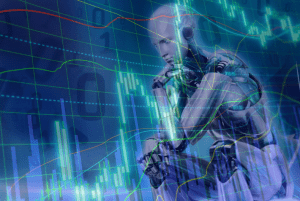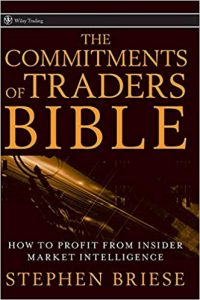
A market maker is an individual or broker-dealer that operates on a stock exchange, buying and selling shares for their own account. Market makers earn a profit both from collecting the spread between the bid and ask prices of a security and also from holding inventory of shares throughout the trading day. Market makers that stand ready to buy and sell stocks listed on an exchange, such as the New York Stock Exchange or the London Stock Exchange , are called “third market makers”.
While there are certainly legitimate concerns about how markets have changed due to high-frequency trading, the only thing we can do is adapt. But because they make so many trades so quickly, the profits add up very quickly. Floor traders stood in large trading quantitative trading ‘pits,’ where they used their own hand signals and jargon to communicate with each other. Floor traders were rarely mathematical geniuses and instead honed market intuition through social cues from other traders in the pit and back-of-the-napkin calculations.

They don’t care about the results of any individual trade, and instead focus on the profitability over thousands or even millions of trades. The SOES system was just one of several technological innovations that were slowly eliminating floor traders, but its story is most emblematic of their downfall. Today’s electronic market making has no physical requirements and instead is made up of the brightest minds in computer science, mathematics, and quantitative finance.
Recommended Articles
The spreads between the price investors receive and the market prices are the profits for the market makers. Market makers also earn commissions by providing liquidity to their clients’ firms. To achieve a fluid trading system, centralized exchanges rely on professional traders or financial institutions to provide liquidity for trading pairs.
A market maker should show the ability and willingness to make a price in a range of sizes, even despite significant volatility. Capital commitment and diverse distribution channels play an important role in doing that. Market makers control how many asset units (stock, currency, etc.) are available for the market. Based on the current supply and demand of said asset, they adjust the price. This should prompt individual traders to place market orders at $1.05. However, there will likely be an influx of buy orders at some point.

They may also make trades for their own accounts, which are known as principal trades. It’s undeniable that the market maker’s role is technically difficult but has real value for the market and exchanges. These participants must commit to maintaining fair prices for different types of assets and covering demand at any time. You may not have known it before, but market makers have always been present in financialmarkets. Otherwise, large-volume orders would only be executed with long delays, making trading impossible.
Let’s dive into how market makers operate, why they’re important to the stock market, and how they make money. The difference between the ask and bid price is only $0.05, but the average daily trading volume for XYZ might be more than 6 million shares. If a single market maker were to cover all of those trades and make $0.05 off each one, they’d earn more than $300,000 every day.
Are Banks Market Makers?
A market maker facilitates the process required to provide liquidity for trading pairs on centralized exchanges. A centralized exchange oversees the operations of traders and provides an automated system that ensures trading orders are matched accordingly. In other words, when Trader A decides to buy 1 BTC at $34,000, the exchange ensures that it finds a Trader B that is willing to sell 1 BTC at Trader A’s preferred exchange rate. Market makers carry out the function of keeping the market liquid. Although they can be individuals, the size of the investments needed to allow traders to buy and sell the security means that they are usually large broking firms.
How To Make Equal Partnerships Work. It’s Hard. – Forbes
How To Make Equal Partnerships Work. It’s Hard..
Posted: Tue, 07 Feb 2023 08:00:00 GMT [source]
These firms are responsible for arranging order flows and compensating brokerages. These can come from mutual funds, pension funds, insurance companies and asset management companies. Market making is prevalent in currency exchange, where the participants tend to be banks and foreign exchange trading firms. In theory, an individual can also ‘make a market’, but the size of the investments needed is a huge hindrance. It takes enormous funds to be able to always stand at the ready to buy or sell. Instead of using dedicated market makers, anyone can provide liquidity to these pools by depositing both assets represented in the pool.
Related Articles
They do so by ensuring that the volume of trades is large enough such that trades can be executed in a seamless fashion. Many exchanges use a system of market makers, who compete to set the best bid or offer so they can win the business of incoming orders. But some entities, such as the New York Stock Exchange , have what’s called a designated market maker system instead. This model incentivizes traders to provide liquidity (providing liquidity refers to routing a non-marketable order which doesn’t immediately interact with the current bid or ask). If you’ve ever traded with a direct market access broker, you probably know that there are dozens of stock exchanges out there.
Market makers are especially prevalent in currency exchange, where the market makers tend to be banks and foreign exchange trading firms. The Frankfurt Stock Exchange runs a system of market makers appointed by the listed companies. Designated Sponsors secure higher liquidity by quoting binding prices for buying and selling the shares. The largest market maker by number of mandates in Germany is ODDO BHF Corporates & Markets AG.

84% of retail investor accounts lose money when trading CFDs with this provider. The first is from collecting the spread between the bid and the ask on a stock. A market maker may post a bid to buy 1,000 shares at $9.90 and an offer to sell 1,000 shares at $10.10.
Income of market makers
The Balance uses only high-quality sources, including peer-reviewed studies, to support the facts within our articles. Read our editorial process to learn more about how we fact-check and keep our content accurate, reliable, and trustworthy. Ken Griffin is founder, chief executive officer and 85% owner of the hedge fund Citadel—the largest market maker in the United States.
- What this means is that the market maker bought the Apple shares for $50 and is selling them for $50.10, earning a profit of $0.10.
- Market-makers use the bid-ask spread to recoup this loss from uninformed traders, who have private reasons for trading, for example, because of liquidity needs.
- In simple terms, they ensure financial assets can easily become ‘usable’ money.
- Once referred to as specialist systems, DMMs are essentially lone market makers with a monopoly over the order flow in a particular security or securities.
It means that they want to buy 100 shares for the price of $5 while simultaneously offering to sell 200 shares of the same security for the price of $5.50. The offer to buy is known as the bid, while the latter offer to sell is the ask. Another way market makers profit is by taking advantage of the rebate systems of stock exchanges. Before the advent of sophisticated electronic trading technology, floor traders were the primary market makers on major exchanges.
Words Starting With M and Ending
Market makers typically work for large brokerage houses that profit off of the difference between the bid and ask spread. However, rumors abound that market makers engage in behavior, such as executing small transaction size trades, as a hint to other market participants about future activity. This might be possible in small capitalization or penny stocks, but there’s little evidence of it being a widespread issue with most companies listed on the primary American stock exchanges. Nowadays, most exchanges operate digitally and allow a variety of individuals and institutions to make markets in a given stock.
Their ultimate goal isn’t to use individual traders but rather to ensure balanced market conditions for all. There’s no rule stopping individuals from becoming a market maker, and whenever you have a bid and offer entered, you’re making a market, albeit a small one. But to actually influence the market, you’d need billions of dollars.
Notably, only high-net-worth individuals or companies can assume the role of a liquidity provider in traditional exchanges. As for AMMs, any entity can become liquidity providers as long as it meets the requirements hardcoded into the smart contract. Liquidity, in terms of trading, https://forexbitcoin.info/ refers to how easily an asset can be bought and sold. High liquidity suggests the market is active and there are lots of traders buying and selling a particular asset. Conversely, low liquidity means there is less activity and it is harder to buy and sell an asset.
